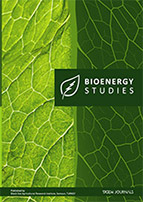Turkish Journal of Fisheries and Aquatic Sciences
2009, Vol 9, Num, 1 (Pages: 39-45)
An Examination of Income Generation Potential of Aquaculture Farms in Alleviating Household Poverty: Estimation and Policy Implications from Nigeria
2 Federal University of Technology Akure, Dept. of Agricultural Economics and Extension, P.M.B 704, Nigeria Viewed : 3593 - Downloaded : 2910 This study examines income generation potential and resource-use efficiency of 120 aquaculture farms in Oyo state Nigeria. The data collected were analyzed using gross margin and stochastic frontier production (SFP) model. Result of gross margin (GM) shows that the farms were quite profitable with an average GM of N207, 000 per annum. The SFP model reveals that, elasticities of all considered inputs were positive and significantly different from zero. Returns to scale of 1.16 computed as sum of the inputs elasticities suggests that, an average farm from the study exhibits increasing returns to scale. Further analyses reveal that, an average technical efficiency estimate of about 81% was obtained from SFP model. This suggests that, about 19% potential yield are forgone due to inefficiency from the study. The result of sources of technical efficiency differential shows that extension; education, stocking density, and credit significantly influenced technical efficiency of the farms. Also, result of simulated marginal effects of these variables on technical efficiency shows that extension has the highest marginal effects on the efficiency estimates followed by credit, education, and stocking density. The study, therefore, suggests that, significant level of profit obtained from the study is synonymous to improve efficiency environment observed among the farms as promotion of aquaculture development has the potential in alleviating household income poverty in the country. Keywords : income poverty, resource- use, productivity, technical efficiency
















